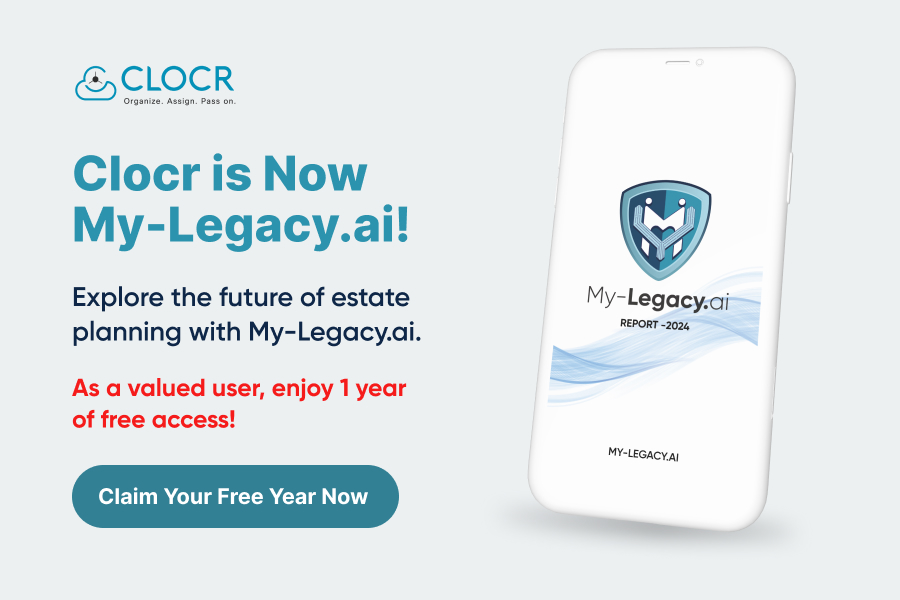Being digitally empowered, most people have various digital footprints, and not many people think of what will happen and what should happen to their multiple online email or social accounts. People leave their life without citing any guidelines on what should be done or how to manage their online accounts. Not mentioning any directions regarding email or social accounts leave custodians and family members in confusion.
So, it is advised to plan the directions on what to be done to their social or email accounts. Each service provider has a different set of deceased user policies. So, users need to consider these policies and accordingly draft their digital estate plan. In this blog, we present deceased user policies of various email and social media service providers.
Facebook allows user authorized dependents to delete the dead user account or “memorialize” it. Memorializing is an act of allowing the user dependents to continue the account on behalf of the user. Facebook allows friends in the user account to share the memories with the user on the user’s Facebook wall. Memorializing the user account also secures the account by not permitting any user to login to the account, make sure that the user content(posts, videos, pictures, and so on) stay in the account, and can be viewed by the persons with whomsoever the user has shared.
Say, if the user in legalized last will or digital estate plan has declared an authorized person to operate, then the dependent can regulate the persons who can share tribute about the departed user. To gain the right to for further data about the deceased user’s account, one needs to submit enough proofs and court order to prove their identity or authorization.
For further information on deceased user Facebook policies, click here.
LinkedIn permits authorized dependents or fiduciaries either to delete the account or memorialize the deceased user’s account. In the case of memorializing the account, the dependent is provided access to dead user’s LinkedIn profile, by confiscating the permission to access messages and to message on deceased user behalf. With LinkedIn, the dependents or family members must validate email addresses and provide evidence of their relationship with the user. Also, the dependent need to provide the user’s- name, LinkedIn profile URL, relationship with the user, email address, and death date.
Say that the user owns a business. Before terminating user account, if the dependent has the user’s login credentials and wanted to export the dead user’s contacts. In this case, based on legal negotiations about the ownership and accordingly, decisions will be taken.
Speaking about the access to the deceased user’s Twitter account, Twitter, on its official page, has clearly stated that “We are unable to provide account access to anyone regardless of their relationship to the deceased.”
After the user is dead, any legally approved dependent (most preferably immediate family members) can request for the closing of the user’s account. Upon request, twitter will be emailing all the directions regarding the action on the account. It is mandatory for the applicant to provide details deceased user’s death certificate and the applicant as well the user’s government approved ID proof. Upon getting authenticated, the applicant can get either account deleted or get an archive of the user’s tweets. In the case of an incapacitated user, similar to the deceased user, an authorized person can get in touch with twitter with appropriate legal documents and get the account deactivated.
Gmail Service
The Gmail service provides the Inactive Account Manager tool to keep google and authorize the person who can get access to your account. Like with other online service providers, recipients upon proving their authenticity by providing legal documents, recipients can get access to the user account. Gmail service checks the Inactive account manager tool to check if the user has provided instruction to hand over data to the person whom the user mentioned in the tool. If not, Google checks the legalized last will and hand over data accordingly.
Yahoo Mail Service
In the case of the Yahoo mail service, any dependent is not permitted to get access to the dead user’s account without a court order. Nevertheless, the user’s family can delete the email account by submitting the death certificate copy.
Hotmail
In the case of Hotmail, Microsoft policies allow the user’s dependents (family members or friends or anyone) either to delete the data or gain access to the data, only after dependent providing legal proofs. To get this dependent or need to contact the Microsoft Custodian of Records through email: msrecord@microsoft.com.
Microsoft, after getting the authorized documents and after thorough verification, the content of the email account will be sent to the dependent on a DVD. The policy document considers family members as only the user’s wife/husband, parents, and kids. By default, if none -including the user- doesn’t access the account, then the account will be deactivated automatically after 12 months.



